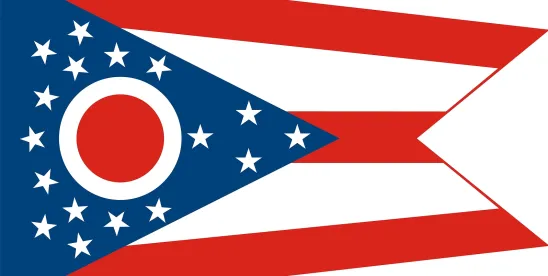Business
Ohio DFI Reverses Licensing Requirement for Loan Arrangers

On October 31, 2023, the Ohio Division of Financial Institutions (DFI) announced a significant policy change regarding the licensing of nonbank entities that arrange consumer loans. This decision reverses earlier guidance issued in December 2024 and January 2025, which had mandated that any nonbank organization facilitating loans of $5,000 or less for compensation must obtain a state license. The DFI’s updated interpretation effectively suspends this requirement for the foreseeable future.
The new guidance delineates several key points affecting nonbank loan arrangers. Firstly, there will be a suspension of licensing requirements for these entities, meaning that they will not need state licenses under the Small Loan Act for arranging bank loans, irrespective of the loan amount. This pause in licensing requirements will remain in effect until further notice from the DFI.
Entities making or arranging interest-free loans of $5,000 or less will also benefit from an exemption, as they will not need to obtain a license during the calendar years 2025 and 2026. Additionally, the DFI will not enforce provisions of the Small Loan Act against activities that are now exempt from licensure. Notably, entities that previously engaged in these activities in 2025 without a license will not face any penalties for their prior unlicensed actions.
Implications for the Lending Landscape
This reversal is a pivotal moment for marketplace lending platforms and other nonbank participants who rely on bank partnership models. By removing the immediate uncertainty surrounding licensing requirements, the DFI provides crucial regulatory relief as it reassesses its approach to consumer lending. This pause allows companies operating in Ohio and beyond to adapt without the pressure of imminent enforcement actions.
As the DFI continues to review its policies, businesses should remain vigilant about changes at the state level. Companies with operations across multiple jurisdictions need to evaluate their compliance structures carefully and be prepared to modify them swiftly in response to regulatory updates anticipated in 2026 and subsequent years.
The DFI’s decision reflects a broader trend in the financial regulatory landscape, where authorities are increasingly recognizing the need to balance consumer protection with the operational flexibility of nonbank lenders. As states like Ohio navigate these complex dynamics, stakeholders in the lending industry will be watching closely for further developments that could shape the future of consumer finance.
In conclusion, the Ohio DFI’s updated guidance on loan arranger licensing is an important step that provides clarity and relief for nonbank entities involved in consumer loans. This development underscores the ongoing evolution of regulatory frameworks in the financial sector and the need for businesses to remain adaptable in a changing environment.
-

 Top Stories4 weeks ago
Top Stories4 weeks agoNew ‘Star Trek: Voyager’ Game Demo Released, Players Test Limits
-

 World4 weeks ago
World4 weeks agoGlobal Air Forces Ranked by Annual Defense Budgets in 2025
-

 World4 weeks ago
World4 weeks agoMass Production of F-35 Fighter Jet Drives Down Costs
-

 Science4 weeks ago
Science4 weeks agoTime Crystals Revolutionize Quantum Computing Potential
-

 World4 weeks ago
World4 weeks agoElectrification Challenges Demand Advanced Multiphysics Modeling
-

 Business4 weeks ago
Business4 weeks agoGold Investment Surge: Top Mutual Funds and ETF Alternatives
-

 Top Stories4 weeks ago
Top Stories4 weeks agoDirecTV to Launch AI-Driven Ads with User Likenesses in 2026
-

 Lifestyle4 weeks ago
Lifestyle4 weeks agoDiscover Reese Witherspoon’s Chic Dining Room Style for Under $25
-

 Entertainment4 weeks ago
Entertainment4 weeks agoFreeport Art Gallery Transforms Waste into Creative Masterpieces
-

 Health4 weeks ago
Health4 weeks agoGavin Newsom Critiques Trump’s Health and National Guard Plans
-

 Business4 weeks ago
Business4 weeks agoUS Government Denies Coal Lease Bid, Impacting Industry Revival Efforts
-

 Lifestyle4 weeks ago
Lifestyle4 weeks agoLia Thomas Honored with ‘Voice of Inspiration’ Award at Dodgers Event









